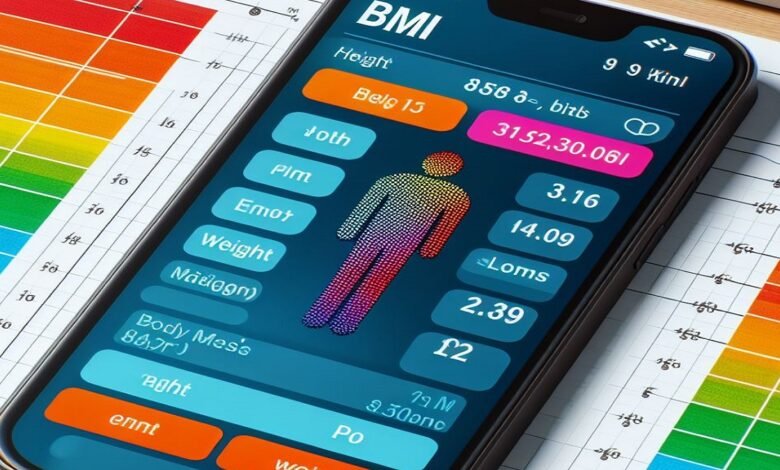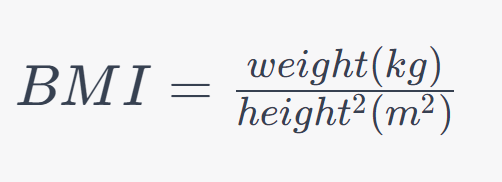Online BMI Calculator | Easy

BMI, or Body Mass Index, is a numerical measure of an individual’s body weight in relation to their height. It is calculated by dividing a person’s weight in kilograms by the square of their height in meters. BMI is commonly used to assess whether a person is underweight, normal weight, overweight, or obese, and it provides a general indication of the level of body fat. It is a useful tool for population-level health assessments but may not take into account factors like muscle mass or body composition, so it has limitations when assessing individual health. Calculate your BMI effortlessly using our intuitive BMI calculator below!
BMI Calculator
Interpret your BMI:
- Underweight: BMI less than 18.5
- Normal weight: BMI between 18.5 and 24.9
- Overweight: BMI between 25 and 29.9
- Obesity:
- Class-I: BMI between 30 and 34.9
- Class-II: BMI between 35 and 39.9
- Class-III: BMI of 40 or higher
The equation of BMI calculator:

Where:
- “weight” is your weight in kilograms (kg)
- “height” is your height in meters (m)
Think about other things too: Besides your BMI calculator result, which gives a basic idea, consider things like how much muscle and bone you have and your body’s makeup. Also, look at measurements like your waist size, body fat, and how fit you are for a better understanding of your health.
Consult a healthcare professional if you’re concerned about your BMI or overall health. They can provide guidance, assess you more thoroughly, and help set realistic health goals.
How to Increase Your BMI for a Healthier You (if Underweight):
1- Balanced Diet: Consume a well-rounded diet rich in whole grains, lean proteins, healthy fats, and a variety of fruits and vegetables.
2- Caloric Surplus: Increase your daily calorie intake to promote weight gain, ensuring you consume more calories than you burn.
3- Strength Training: Incorporate resistance exercises to build muscle mass, which can increase your BMI in a healthy way.
4- Regular Meals: To eat more without feeling too full, think about having more meals and snacks during the day.
5- Consult a Nutritionist: For personalized guidance on healthy weight gain, it’s advisable to seek assistance from a healthcare professional or nutritionist. They can help you create a tailored plan that suits your specific needs and goals
How to Decrease Your BMI for a Healthier You (if Overweight or Obese):
1- Healthy Eating: To eat better, eat a balanced diet with the right calories. Eat more fruits, veggies, lean meats, and whole grains. And try to eat less sugar and processed foods.
2-Portion Control: To ensure you maintain a healthy relationship with food, it’s important to be mindful of portion sizes, thus avoiding overeating. Additionally, practice mindful eating to help recognize hunger and fullness cues more effectively.
3- Regular Exercise: To effectively burn calories and enhance muscle mass, it’s essential to engage in regular physical activity. This should include a combination of aerobic exercises, such as walking or swimming, as well as strength training.
4- Hydration: Drink plenty of water to support metabolism and reduce cravings for sugary beverages.
5- Consult a Healthcare Professional: Consult with a healthcare provider or registered dietitian for personalized advice and support in achieving a healthy BMI.
6- Set Realistic Goals: Establish achievable weight loss goals and track your progress to stay motivated and on track.
The BMI calculator is simple but limited. It gives some useful information but doesn’t show everything about your health. So, use it with other tests to get a better idea of your well-being.
For further information about BMI, you can explore additional resources such as Wikipedia: Click Here
